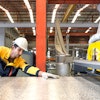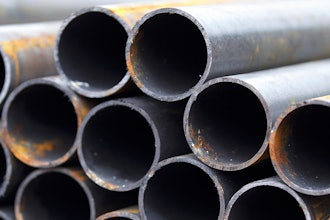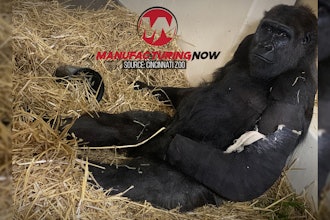The use of mobile computers in HMI/SCADA environments for automation and control continues to evolve as manufacturers implement additional systems to leverage the automation that's already in place on the plant floor.
As powerful computing and communications technology is packaged in smaller, lighter and more durable form factors, more facilities are deploying mobile computers to improve quality and process reliability, to provide enhanced decision capability, and to reduce cost. In many plant environments, rugged mobile computers, have inherent advantages over fixed devices.
Rugged mobile computers are well suited to the demanding plant floor environment where conditions range from "dark and dingy," to “clean room,” and where there is the for potential exposure to oil, dirt and harsh chemicals, heat and cold; and general tough use from bumps, drops and vibration.
Wireless Devices Can Go Anywhere
While initially developed as a method to replace paper forms, the value of portable tablets has been greatly extended by advances in wireless functions for real-time data acquisition and processing.
Wireless capability, combined with rugged packaging and compact size, allows computers to travel anywhere in the factory environment, thus bringing full computing capability right to the point of decision. This is a key extension of the information system in the factory, and provides highly leveraged access to data systems and machine management automation already in place.
HMI/SCADA applications have been traditionally characterized by on-machine automation, hardwired displays and thin clients whose primary function is to convey input and output between the user and a remote server. In contrast, mobile wireless computers can run robust local applications as well as thin client applications. They also support wireless connectivity and external device direct connectivity, such as reading/controlling instruments or machines.
In addition, unlike a wireless thin client device, multiple applications can be loaded and used on a single unit. This means they are multi-use devices, and they also offer the additional advantage of being able to operate outside the presence of wireless networks.
Robust and Rugged
Mobile devices in the manufacturing environment are subjected to a broad range of shock and vibration, including accidental drops and bumps, and the effects of being mounted on machinery or moving equipment. In addition, factory personnel aren’t necessarily going to treat a computer with kid gloves.
Rugged mobile computers used in a manufacturing environment should be designed with special attention to material properties that mitigate the effects of shock and vibration. As an example, isolation techniques are used to absorb shock and vibration energy to protect the hard drives. Solid-state storage devices are also available for especially challenging applications.
Resistance to dust and moisture are hallmarks of rugged mobile computers. Dust can clog connections, and water, in even the smallest amounts, turns to vapor upon operation of electronic equipment and migrates throughout the unit. In order to prevent or minimize dust and moisture ingression, a computer's external housing is designed and manufactured to very tight tolerances.
Rugged computers are typically ranked by ingress protection ratings which specify the environmental protection provided by an electronic enclosure. The IP rating normally has two numbers indicating the levels of protection against water and dust. Rugged computers should have the highest levels of dust protection (5 or 6) and a water protection level of 6, which is considered to be water resistant.
Durability and Long Life
Experience shows that rugged mobile computers have a longer active life (even in the toughest application) than conventional computing equipment. The typical active life of products like this is around 4.5 years, before it is replaced for technological reasons. The soundness of the design, accompanied by the excellence of the service programs that can keep the units running and in top condition, mean that the factory’s investment in these types of mobile devices is well-leveraged over time, and that decisions to replace this equipment aren’t driven by the decline of the hardware. This allows better reinvestment planning and avoids unexpected repair/replace costs.
The flexibility of full-function mobile computers offers distinct advantages that improve HMI/SCADA environments and can make operations more efficient. The decision to deploy a rugged mobile computer instead of using conventional devices is often a question of cost vs. benefit. The ability to extend automation systems right to the point of work and to use computing technology no matter what the usage environment -- to go anywhere -- offers significant operating benefits. Selecting a rugged tablet PC makes that type of plant operation a reality.
Tom Sperrazzo is Business Manager, Heavy Industry & Manufacturing, for DRS Technologies in Melbourne, Fla.






















